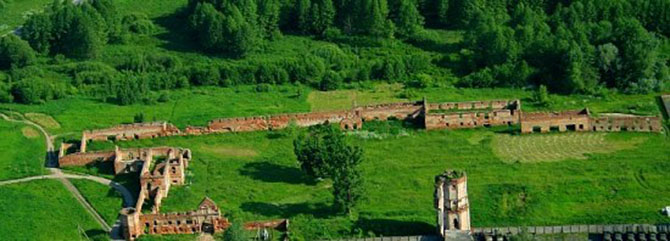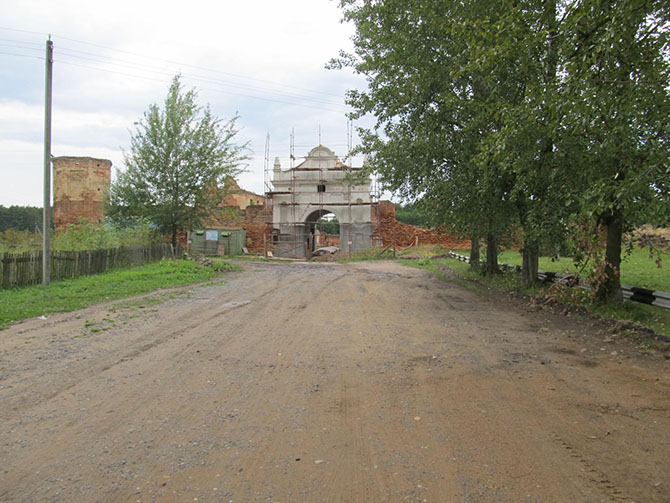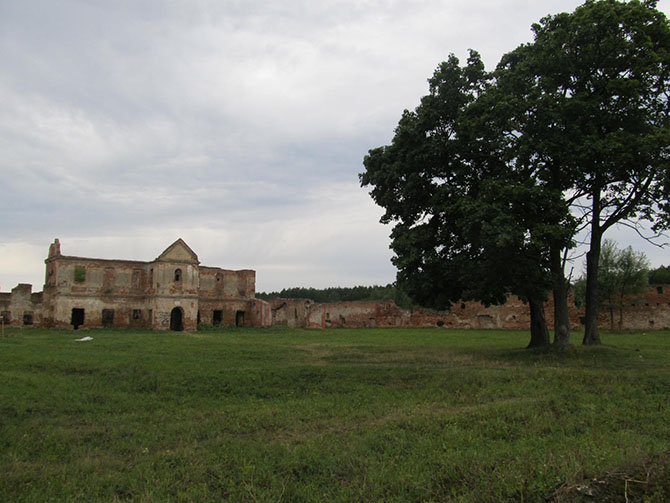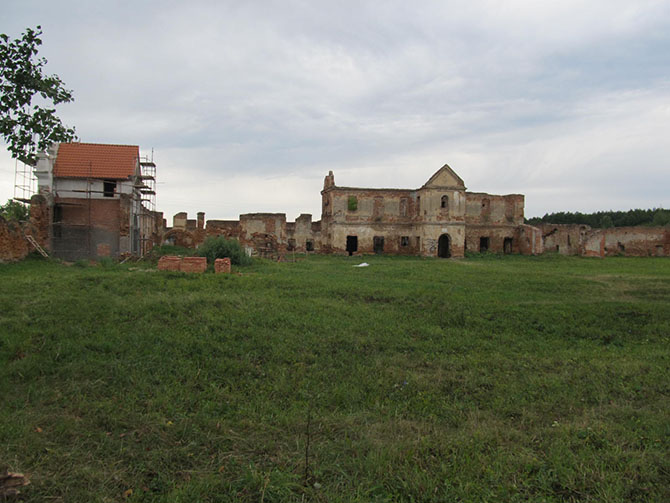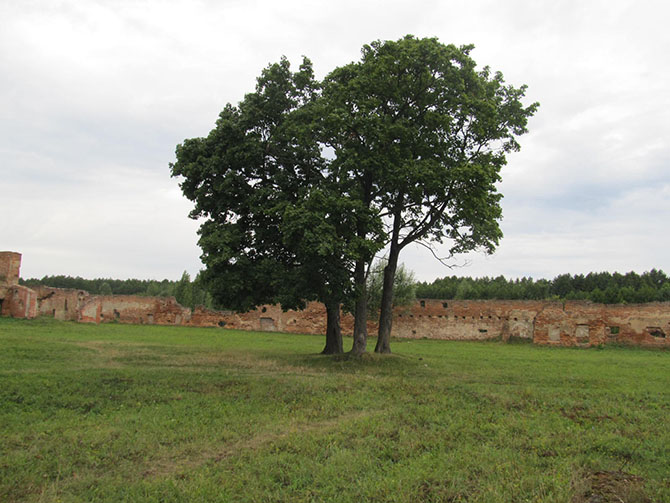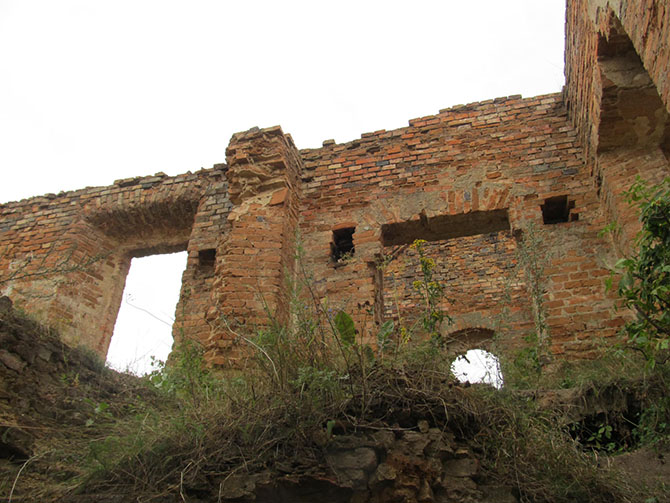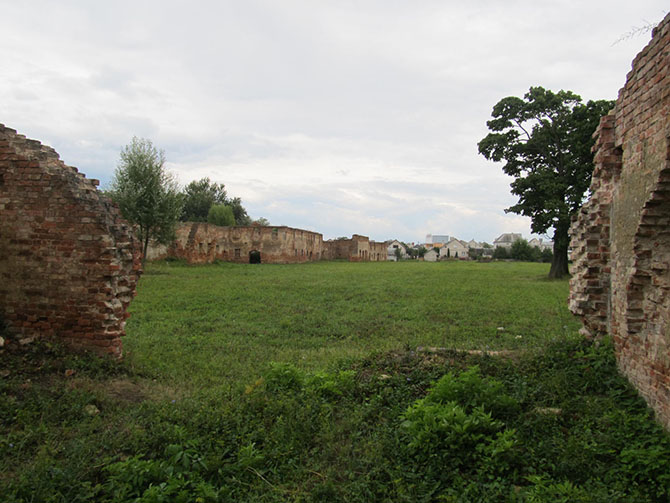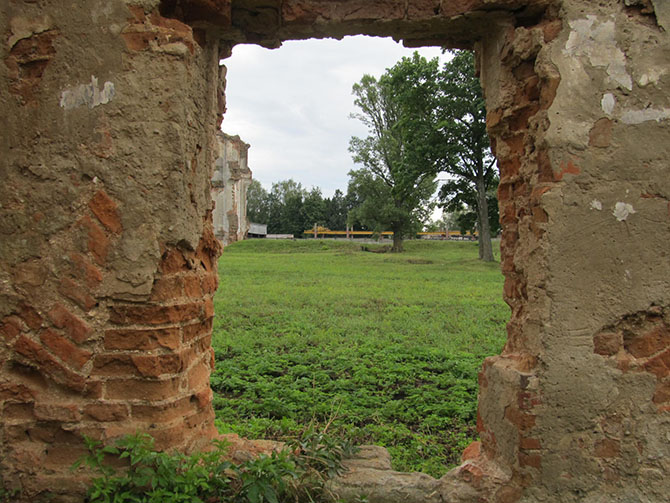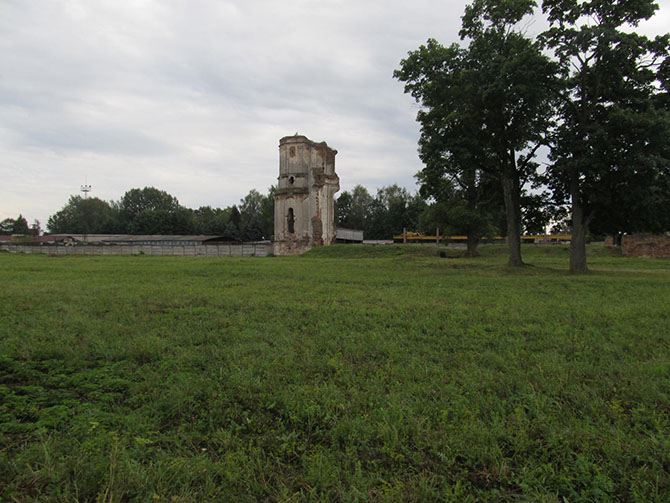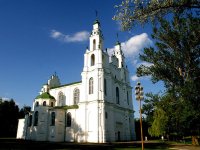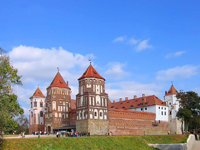The monastery of Carthusians in Biaroza
The monastery of Carthusians in Biaroza (Brest region) was founded by Sapiehas in 1689. An unknown Italian architect built the monastery in the Baroque style. In addition to the land the monastery was also donated 800 yards of the peasants.
It took 40 years to build the monastery. During this time the builders erected two lines of walls, courtyard, a garden, a church and even an artificial pond.
In the cells of the monastery 14-16 French monks lived. Each cell had a separate exit to the garden where the monks walked alone without meeting each other because the charter of the Carthusians was very strict.
About two thousand local residents worked on the monks. Breweries, soap factories, mills, tiles’ workshops were opened in the monastery. Clothing and footwear was also sewed by monks. Monastery’s garden had two ponds.
During the Great Northern War King August II and Peter the Great had a meeting in the monastery.
After one of the partition of the Rech Pospolitaya the monastery became the property of the Russian Empire. In the years 1830-1831 the monks participated in the uprising against the Russian Empire, for which the monastery was closed and the monks were send to other monasteries.
Several regiments of the Russian army quartered in Biaroza in 1866. They had no place to sleep and they used red bricks from the monastery to build barracks.
In 1934 in the barracks a concentration camp "Biaroza-Kartuskaja" was opened.
At the beginning of the 1990s the monastery was placed in the list of the Belarussian historic architectural heritage. There was a project of renovation of the monastery, however little progress was made. The restoration of the main gates of the monastery started with the help of regional budget.
The monastery is unique because Carthusians’ monks lived in Belarus only in Biaroza.
